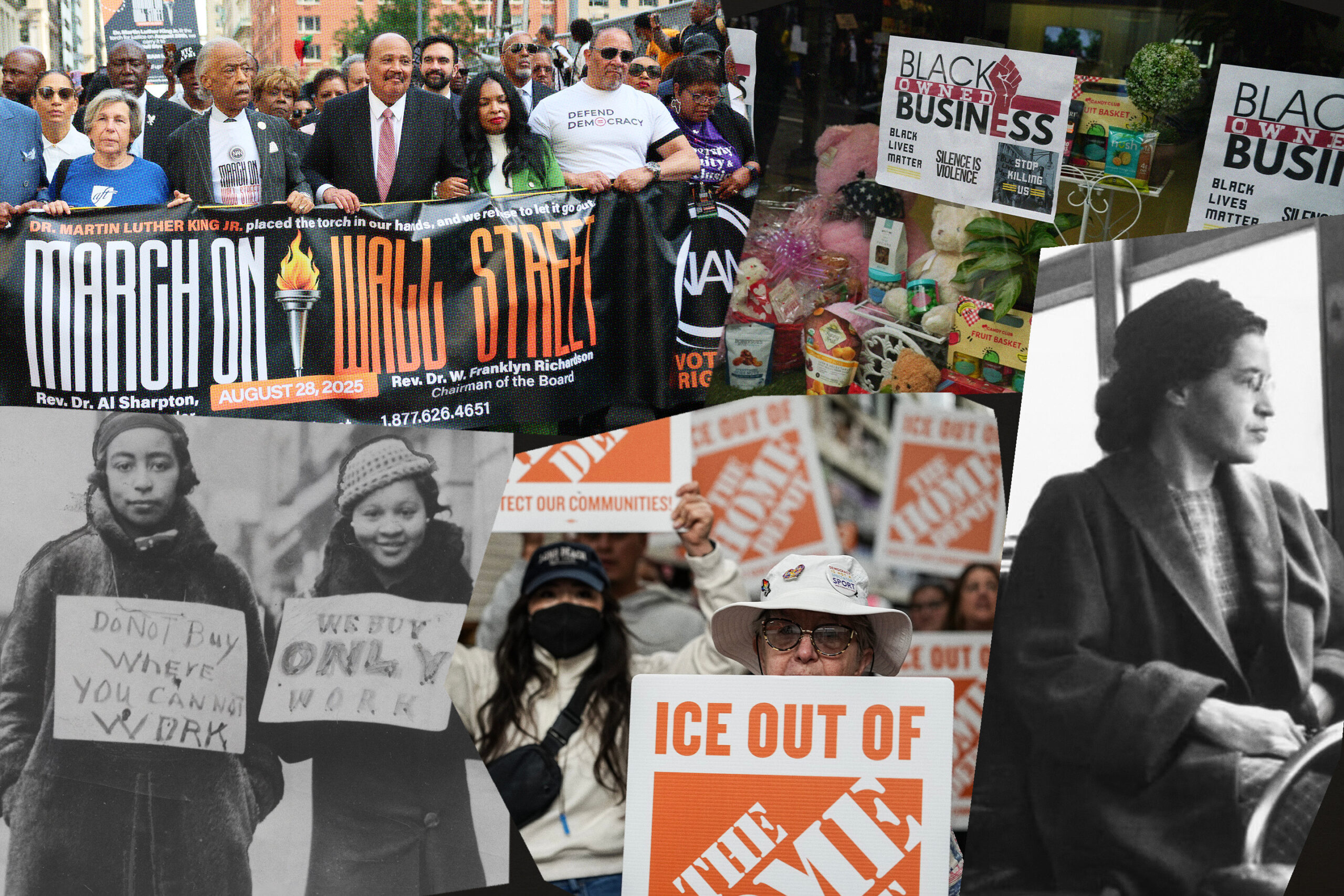
A new Black Friday campaign against Amazon, Home Depot and Target says diversity is the best value.
By Erin Aubry Kaplan
When it comes to struggle, there are no holidays. But this year there’s a new effort to make the winter shopping season a gift to a growing consumer movement against racist Trump policies and the multibillion-dollar companies that have bowed to them.
Black Friday, which kicks off the busiest shopping weekend of the year, also marks the launch of a new consumer boycott targeting Amazon, Home Depot and Target. Organizers of the boycott are urging Americans to stop spending money at high-profile companies they say are participating in the oppression of people of color on a massive scale, from scuttling their diversity, equity and inclusion initiatives to tolerating the brutal ICE raids happening regularly at their stores.
The California-specific campaign, which runs through the end of December, is being organized by We Are California, a group that promotes social change through multiracial coalition-building and action. It’s a state-level version of a national boycott, We Ain’t Buying It, that is also urging consumers to pause their spending at the same three companies from Thanksgiving to Cyber Monday, for the same reasons.
Join our email list to get the stories that mainstream news is overlooking.
Sign up for Capital & Main’s newsletter.
The California campaign, however, goes further. Organizers are urging people to redirect dollars that might have gone to big stores to smaller businesses owned by Black, brown and Indigenous people. It’s a push for racial solidarity the campaign is calling “We Spend Where We Get Respect,” and the campaign’s website includes a directory of local businesses that consumers can buy from instead. It’s not a new idea — Black consumers mounted similar antiracist campaigns against retailers who refused them service during Jim Crow. But in the racially regressive era of Trump, the idea has grown in scale and resonance.
California can play an outsized role because of its status as the world’s fourth-largest economy, as well as its history as a national leader on many social justice causes. Perhaps none has become more crucial, or more fundamental, than the cause of racial equality. What has long been an open-ended aspiration has, in the age of Trump, taken on the fierce urgency of now.
We Are California says on its website that “we need a multiracial, multigenerational, multi-issue movement to create the California we dream of.” Its boycott has a diverse list of supporters, including Community Coalition and Inner City Struggle in Los Angeles, two grassroots organizations that serve Black and brown neighborhoods. In coming together, they are sending the message that California has an obligation to do more than celebrate its diverse population — it has to empower it. In the process it has to remind the country of who and what it is.
Disseminating a call to counter the multiple and profound injustices of the Trump administration through decisions about where you choose to shop for gifts may feel a little incongruous. But at a moment in which corporate wealth and capitulation to blatantly antidemocratic policy have become so intertwined, the choice of where they spend their money may be the loudest pro-democracy voice Americans have.
The Black-led boycott of Target that’s been going on since March in response to Target’s reneging on its public DEI commitments has certainly had an impact; the company’s sales and profits have declined and its CEO is stepping down. While Target hasn’t restored its DEI policies — that’s why it’s still on the list — since April it’s tried to reaffirm core diversity values in public statements. Suffice it to say that the boycott is not just affecting bottom lines, it’s establishing diverse America as a force to be reckoned with, financially and culturally.
Boycotts also serve to remind Target and other Trump-accommodating corporate giants that it’s their customers who are the true source of their billions, not the president. The old adage that the customer is always right still has currency, and in many cases, moral weight.
It’s not a coincidence that 70 years ago in December, Black people in Montgomery, Alabama, launched a boycott of the city’s bus service that eventually forced the city to drop the strict segregation of public transit that had been in place since the end of slavery. The boycott took a year to work. In the context of history, especially the history of American struggle, that wasn’t long at all.
Copyright 2025 Capital & Main